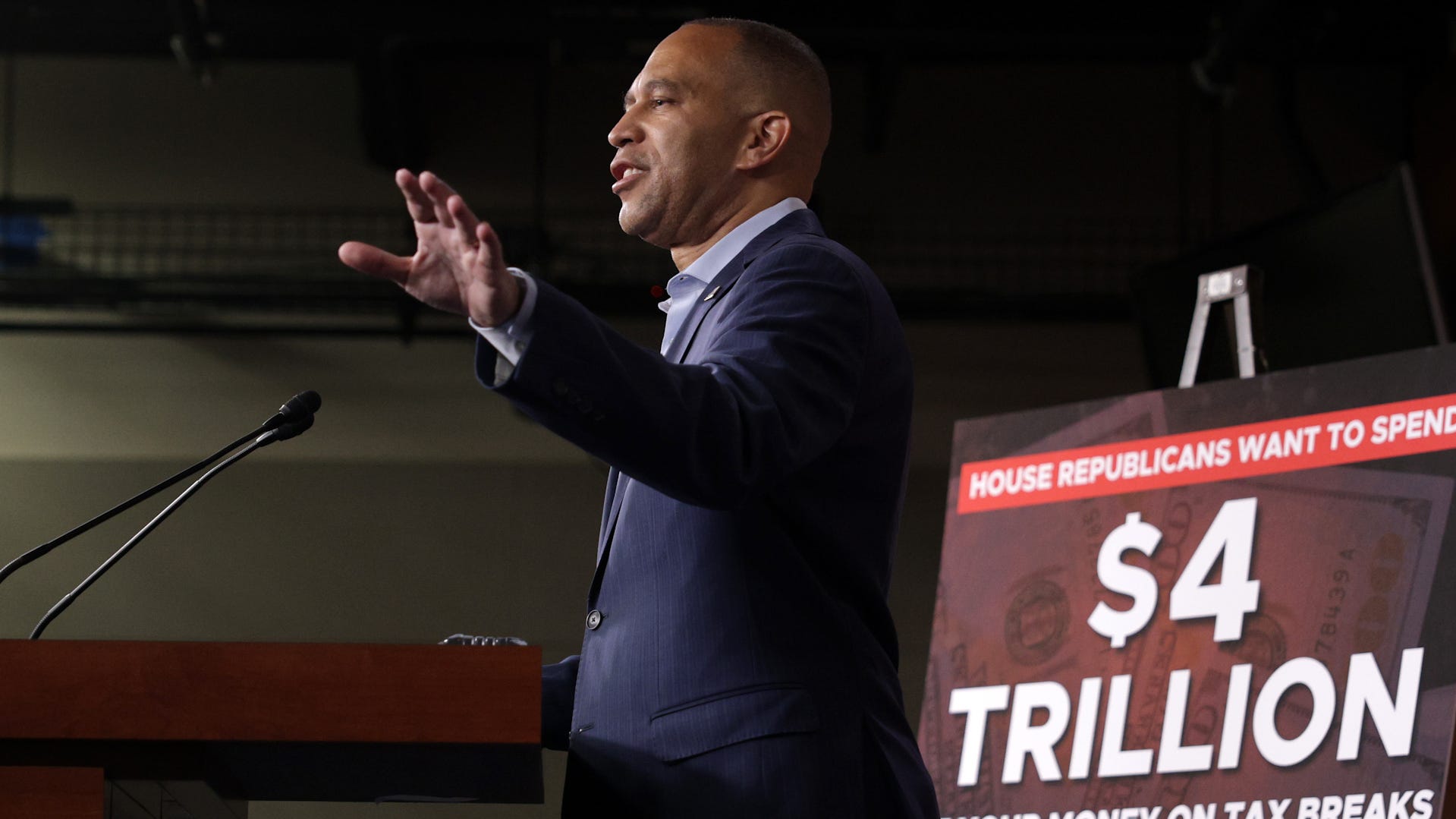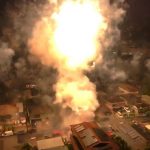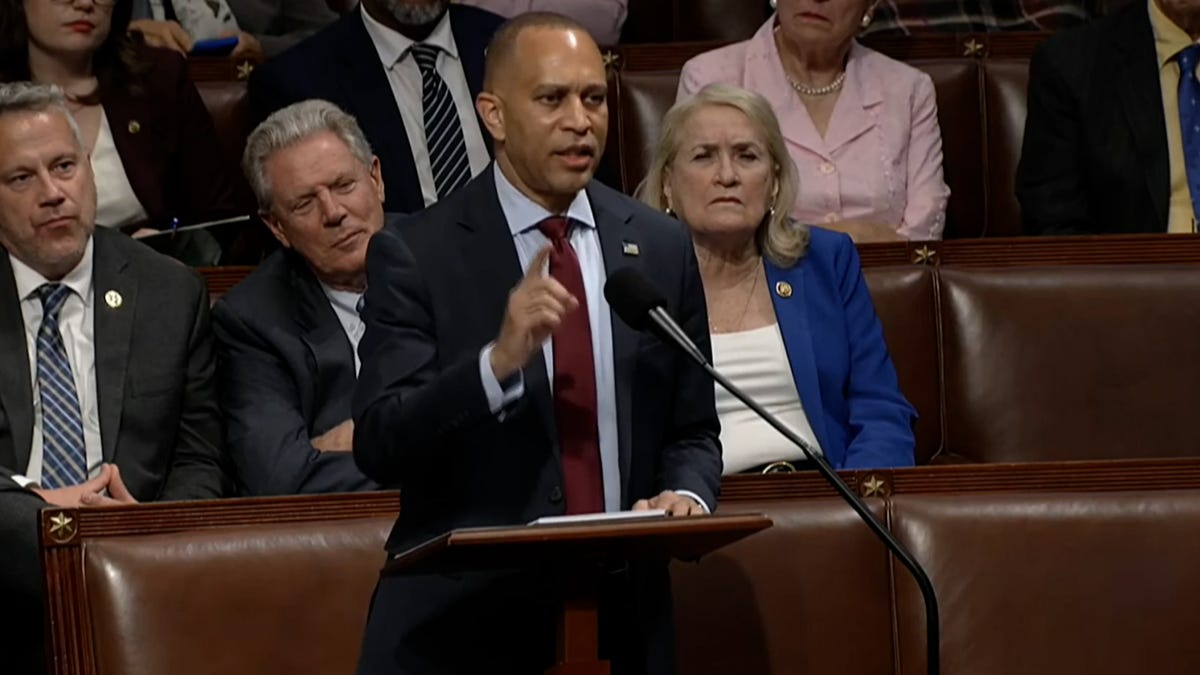The defense budget request is the biggest in U.S. history.

Dems blast GOP Senators for passing ‘Big Beautiful Bill’
Democrats sharply criticized GOP Senators for passing President Donald Trump’s “Big Beautiful Bill.”
WASHINGTON − In February, before President Donald Trump and Elon Musk’s very public feud, the president bragged his ally would find “hundreds of billions of dollars of fraud and abuse” in the Defense Department budget.
Less than five months later, the Pentagon formally announced the country’s first-ever $1 trillion defense budget proposal for fiscal year 2026, eclipsing the previous year’s enacted total by more than $100 billion. The direct “savings from DOGE collaboration” touted in the Defense Department’s budget rollout? Only $6 billion.
Although Congress must legislate and approve the full budget, an initial tranche of the fiscal 2026 funding − $119.3 billion of the $1.01 trillion − for the Defense Department and the National Nuclear Security Administration will likely arrive via Trump’s tax and spending package, which he has dubbed “one, big beautiful bill.” The administration staked key portions of the defense budget on Trump’s megabill, which includes controversial conservative policy priorities.
Defense Secretary Pete Hegseth argued before the Senate Armed Services Committee that the budget is needed to “end four years of chronic underinvestment in our military.”
Former President Joe Biden requested increased levels of defense spending, but congressional Republicans asked for even more. A DOD spokesperson told USA TODAY that Hegseth continues to review programs for cuts or further reallocations.
The Pentagon and NNSA spending boost contrasts with major cuts to other programs sought by the administration and the Republican majority in Congress. The reconciliation megabill, which passed the Senate on July 1, must again win House approval before it goes to Trump for his signature. (The White House did not immediately respond to a request for comment.)
Over the next decade, the reconciliation bill would cut $1 trillion from Medicaid, according to the nonpartisan Congressional Budget Office; $300 billion from food stamps; and hundreds of billions more from clean energy programs.
Foreign aid and education programs are on the chopping block in the main budget, which Congress has not yet started deliberating.
House Armed Services Committee Chair Mike Rogers, R-Alabama, said the defense spending boost in the reconciliation bill is “needed to restore American deterrence, revitalize the defense industrial base, and modernize our military.”
Figures on both sides of the political spectrum, including Trump’s former chief strategist Steve Bannon, have expressed frustration over the defense budget’s continued growth.
“You can’t talk about fraud and waste and abuse in this town unless you’re gonna go to the Pentagon,” Bannon said in an April 24 podcast. “And you know what’s happened since [DOGE] went over there? Crickets … The system we have is not sustainable.”
William Hartung, a defense spending expert at the Quincy Institute for Responsible Statecraft, told USA TODAY the Pentagon’s rushed budget rollout omitted key documents detailing “the nuts and bolts” of its funding requests.
“It makes it very hard to analyze … their priorities,” Hartung said. “(There’s) a lot missing if you’re a member of Congress trying to evaluate this.”
That could leave lawmakers and analysts flying blind during the hurried reconciliation bill negotiations. Trump has pushed congressional Republicans to have the legislation on his desk by July 4.
Hartung argued that spending more on defense doesn’t necessarily mean better results because Congress often spends money based on what congressional district or state will receive the work rather than how the proposal aligns with U.S. strategy.
Former Democratic Rep. John Tierney, who now heads the Council for a Livable World and Center for Arms Control and Nonproliferation nonprofits, said he believes the political climate discourages lawmakers of both parties from questioning defense spending.
“There’s not a lot of thought about what the strategy is,” Tierney added.
Nuclear modernization, missile defense garner billions
According to the Pentagon, about $85 billion of the proposed defense budget would go toward U.S. nuclear capabilities and Trump’s Golden Dome missile defense initiative. Much of the funding would go toward America’s triad of nuclear-armed bombers, intercontinental ballistic missiles and nuclear submarines whose replacements are the centerpieces of a broader $1.7 trillion nuclear modernization campaign.
Hartung emphasized the Pentagon and NNSA’s poor track record of keeping such protects on-time and on-budget.
The Government Accountability Office estimated in June that the full cost of developing and deploying the Sentinel ICBM, slated to replace the Minuteman III missiles that have remained on watch since 1970, will balloon to “approximately $170 billion” after the Air Force realized the new missiles could not use legacy Minuteman III silos.
“This project is totally out of control,” Tierney said.
The administration wants the restructured Sentinel program to receive $4.5 billion in fiscal 2026, according to budget documents. New silos are not included in that figure.
The NNSA, which designs, builds and maintains the country’s nuclear warheads, is in line to receive a $5.56 billion (or nearly 30%) boost in funding for its Weapons Activities division compared with last year.
The agency is struggling to hit its timeline and cost goals for reestablishing mass production of nuclear warheads’ explosive cores, known as plutonium pits.
A USA TODAY investigation in May detailed the NNSA’s decadeslong battle to secure enough federal employees with adequate technical backgrounds to oversee the agency’s complex and sprawling projects. Government watchdogs have consistently highlighted staffing problems as an Achilles’ heel for the agency.
NNSA’s fiscal 2026 budget request does not include significant funding for additional federal employees, despite agency leaders testifying to Congress on May 20 about their scramble to address DOGE-created vacancies amid a near-total hiring freeze.
The NNSA funding boost “is a recipe for wasting money,” Hartung said.
Davis Winkie’s role covering nuclear threats and national security at USA TODAY is supported by a partnership with Outrider Foundation and Journalism Funding Partners. Funders do not provide editorial input.
Contributing: Cybele Mayes-Osterman









1win промокод при регистрации [url=https://1win1135.ru]1win промокод при регистрации[/url]